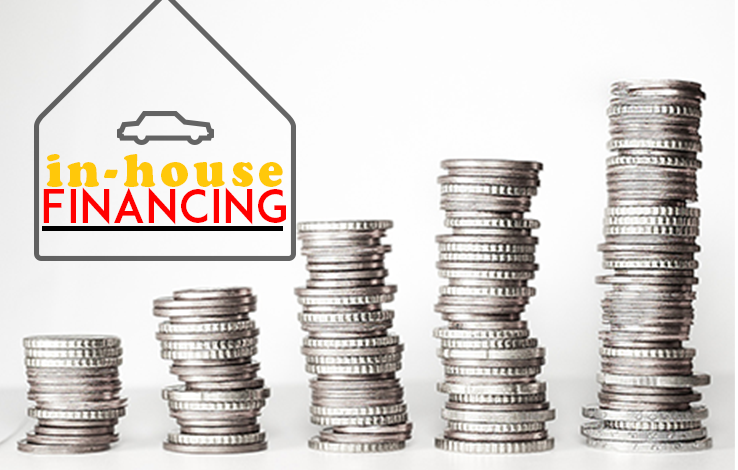What are In-House Financings, and how do they differ from bank loans?


The In-House Finance Process
Purchasing goods and services on credit allow a company to expand its customer base. A company that does its house financings removes the necessity to depend on the financial sector to give its customers funds to complete a transaction.
Many retailers provide in-house financings to assist consumers in the purchase process. If retailers want to serve their customers’ loans internally, they must either have their own lending business or partner with a third-party provider. When consumers take advantage of in-house granting, they can often get a loan through a company that they would not have obtained through a traditional lender, such as a bank.
Automobile sales and in-house financing
Since the automobile sales industry depends on auto loans to close a vehicle, in-house financing is imminent. In-house financings helps firms complete more deals by agreeing more consumers. Automobile sales assistants also have the profit of setting their levels for underwriting. It can sometimes shelter many loan takers by permitting lower credit scores to be received. Granting platforms agree to accept borrowers that banks and other financial intermediaries might not. Other industries providing in-house financings incorporates tool builders, apparatus stores, and e-commerce retailers.
Technology and in-house financing
Many borrowers now have several options for in-house financings via faster and more relaxing point-of-sale platforms, which are now obtainable from new financial technology companies. A company can utilize point-of-sale credit technology merged with their in-house credit department or partner with a single financial institution to service their customers’ lending needs. In addition to Affirm, which provides immediate loans to retailers, another popular point-of-sale platform is Square.
The ability to apply for credit at the point of sale clarifies the lending process for consumers by presenting their approach to credit as soon as they are ready to buy. Retailers can provide consumers with a credit decision within minutes, making it a very convenient process. Retailers with access to point-of-sale financing are more likely to close deals. Companies with such options sold more than 32% more.
Is in-house financing available at car dealerships?
The dealerships that provide in-house financings work with a private lender to organize your lender. They directly finance you. A dealership makes monthly payments to you when you borrow money to buy a vehicle. A dealership’s in-house financings department usually only requires proof of income to confirm your loan.
The pros and cons of in-house financing at car dealerships
- The system is bendable. Dealerships that provide in-house financings are a better choice for consumers with poor credit or no credit history. These dealerships may have fewer restrictions and regulations than banks.
- It’s a relaxing experience. It is easier to finance your car at the same place you’re shopping for it, so you don’t have to travel between your bank and the dealership.
- Building credit is one of its benefits. As an installment credit, you aren’t allowed to borrow more than you are approved for, and you must pay it off within a fixed timeframe. Customers with bad credit can reconstruct their credit standing through in-house financing.
- Interest prices could be higher. When you get funding in-house through a dealership, you will pay more interest over the life of the loan. Dealerships may present you with a lower interest level if it means closing the opportunity.
- There are few contract options obtainable. If you want to terminate the contract early, you’ll have to pay a penalty because dealers offer closed financing.
- Some dealerships don’t disclose payments. You need to tell your car loan payments to TransUnion Canada and Equifax Canada to reap the benefits of a car loan’s credit-building qualities. Ask before you sign a contract if the dealership reports to credit unions.
How does a bank finance a car?
You can obtain a car loan from the most prominent financial institutions. Your bank or credit union will fund the purchase of a vehicle if you use bank financing. You repay the bank what you owe on the car each month. Most car shoppers obtain funding from an institution they already have an account with. Bank financing can be challenging to get for people with bad credit.

Bank financing a car: pros and cons
- People with banking or credit union relationships are more comfortable doing business with them. Lastly, a bank may be lenient in the case of missed payments than a dealership.
- In addition, banks offer lower interest rates than dealerships because they have greater financial margins..
- Getting approved is more challenging if you have bad credit. Bank loans are much more stringent, and most banks require high credit scores. Their goal is to ensure that every dollar they lend out will reimburse.
- It may take a long time to learn if you have approval for an auto loan at large financial institutions. You might miss out on a car you loved because your financing fell through at the last minute.
Apart from this, if you are interested to know about Are There Any Finance Internship Opportunities For Students? What Type Of Finance Jobs Can Be Found? then visit our Finance category.


